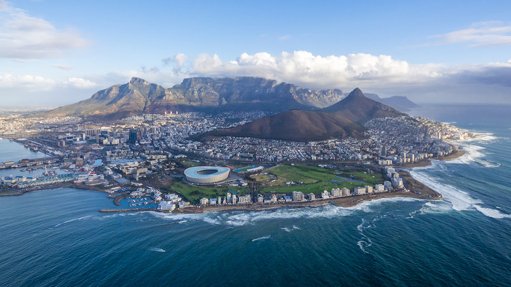
DEVOLVING STATE RAIL The City of Cape Town is working to prove the viability and business case of it running an independent passenger rail service
As the City of Cape Town investigates the viability of building up its own infrastructure and managing an independent passenger rail network, it has expressed concern about government’s having contradictory sentiments.
For the national government to devolve commuter rail services from the Passenger Rail Agency of South Africa (PRASA) to the City of Cape Town, the correct legislative mandates need to be established or amended.
To this end, Cabinet in May 2022 approved the White Paper on National Rail Policy, which commits to devolving rail to capable metropolitan areas, or metros. Government also committed to producing a Rail Devolution Strategy in 2023.
However, not only has a draft publication of the strategy been delayed to 2024, as stated in a letter by former Transport Minister Fikile Mbalula to the Cape Town mayor’s office, but new Transport Minister Sindisiwe Chikunga said last month that there were no plans to devolve rail to Cape Town.
Additionally, African National Congress (ANC) economic transformation policy head Mmamoloko Kubayi in January this year told a newspaper that devolving rail is “off the table for the ANC” and that she would not advise any department to dissolve power or function to the metros.
In contrast, Finance Minister Enoch Godongwana in a letter to the city lauded the city’s efforts to become an independent passenger rail service operator and wished them luck in their feasibility study.
Cape Town mayor Geordin Hill-Lewis and Cape Town Urban Mobility MMC Rob Quintas agree that the public and metros deserve clarity from President Cyril Ramaphosa on whether government intends to scrap plans to devolve passenger rail to capable metros.
The city is, nonetheless, conducting a feasibility study, which started about a year ago. In a preliminary financial analysis and impact-assessment report, as part of the feasibility study, the city estimates an efficient rail service can contribute R11-billion to the local economy every year.
The initial report also finds that the lack of a safe, reliable and affordable rail service is costing lower-income households almost R940-million a year, owing to their having to spend about 40% of their income on transport to and from work.
Quintas says this is money that could have been spent on education or food, for example.
Over 20 years, a functional passenger rail service can save Cape Town and its residents R81-billion in vehicle operating costs, such as fuel and maintenance; congestion time; and vehicle-crash cost savings. It can also sustain close to 52 000 direct and indirect jobs.
Quintas says a dysfunctional freight rail system in the province is also impacting on business logistics, with more trucks on the road transporting cargo meaning more road maintenance is required.
The city is also spending hundreds of millions of rands on developing congestion relief programmes to try to improve traffic flow into Cape Town, including a R5.7-billion bus network, all owing to a collapsed rail service.
Meanwhile, the tracks, locomotives and other existing infrastructure of PRASA continue to be vandalised, which further increases the cost of refurbishment.
Quintas tells Engineering News that the city is not confident that a national rail devolution strategy will materialise, especially not within a short timeframe, and it is, therefore, working towards solidifying its investment case to the National Treasury over the next two years.
The feasibility study aims to unpack a devolved rail service scenario, identify the responsibilities of the city and the guarantees that would be required from the State.
Citing examples of how effective devolved passenger rail systems work in London, Paris and Tokyo, Quintas says the city does not wish to wait for government to make a decision.
Rather, the city will finalise the feasibility study and be sure of its capability parameters, operationally and financially, and pursue the support of the National Treasury.
He confirms that the city will possibly consider a legal route to pursuing the matter, as rail devolution is mentioned in the Constitution, but not before ensuring that a devolved passenger rail service will not leave the city bankrupt.
It is impossible to draft a blueprint for devolved rail in the country, as metros have different requirements and capabilities, and need to devise the best model for their specific and unique circumstances, Quintas points out.
He affirms that the city has received expressions of support from industry and the general public, and that the economic pressure of not having a functional passenger rail system will, ultimately, boost the city’s efforts.